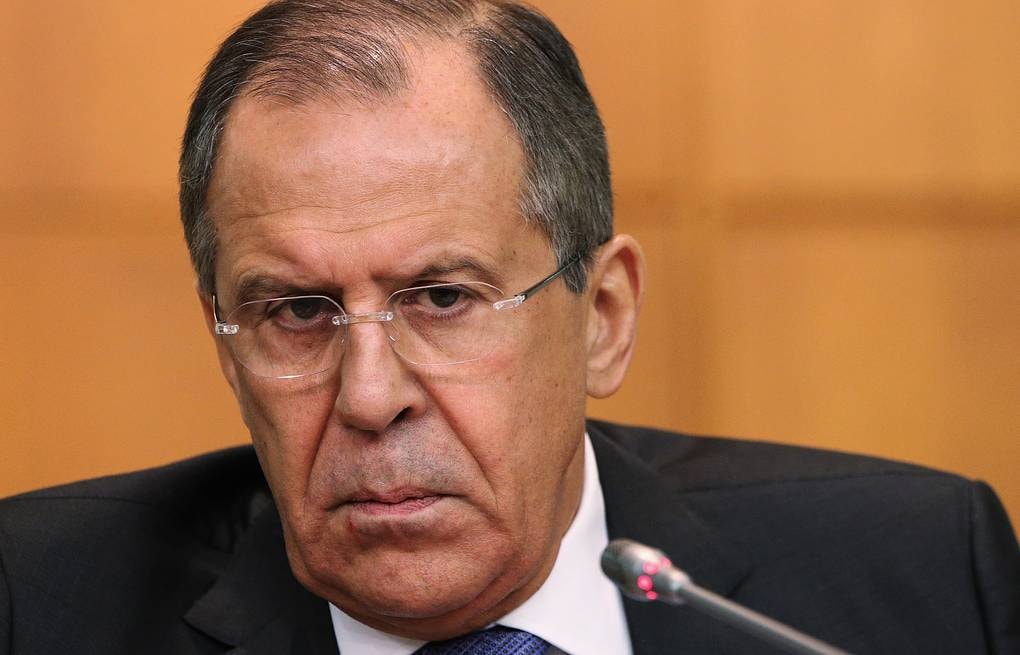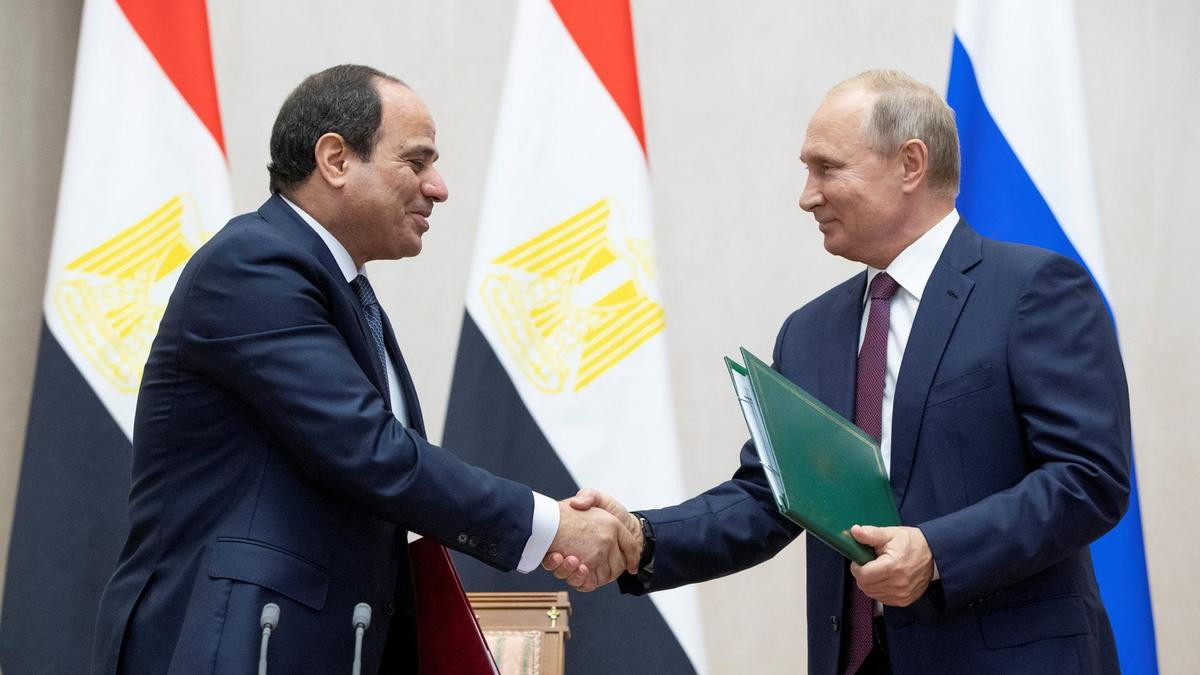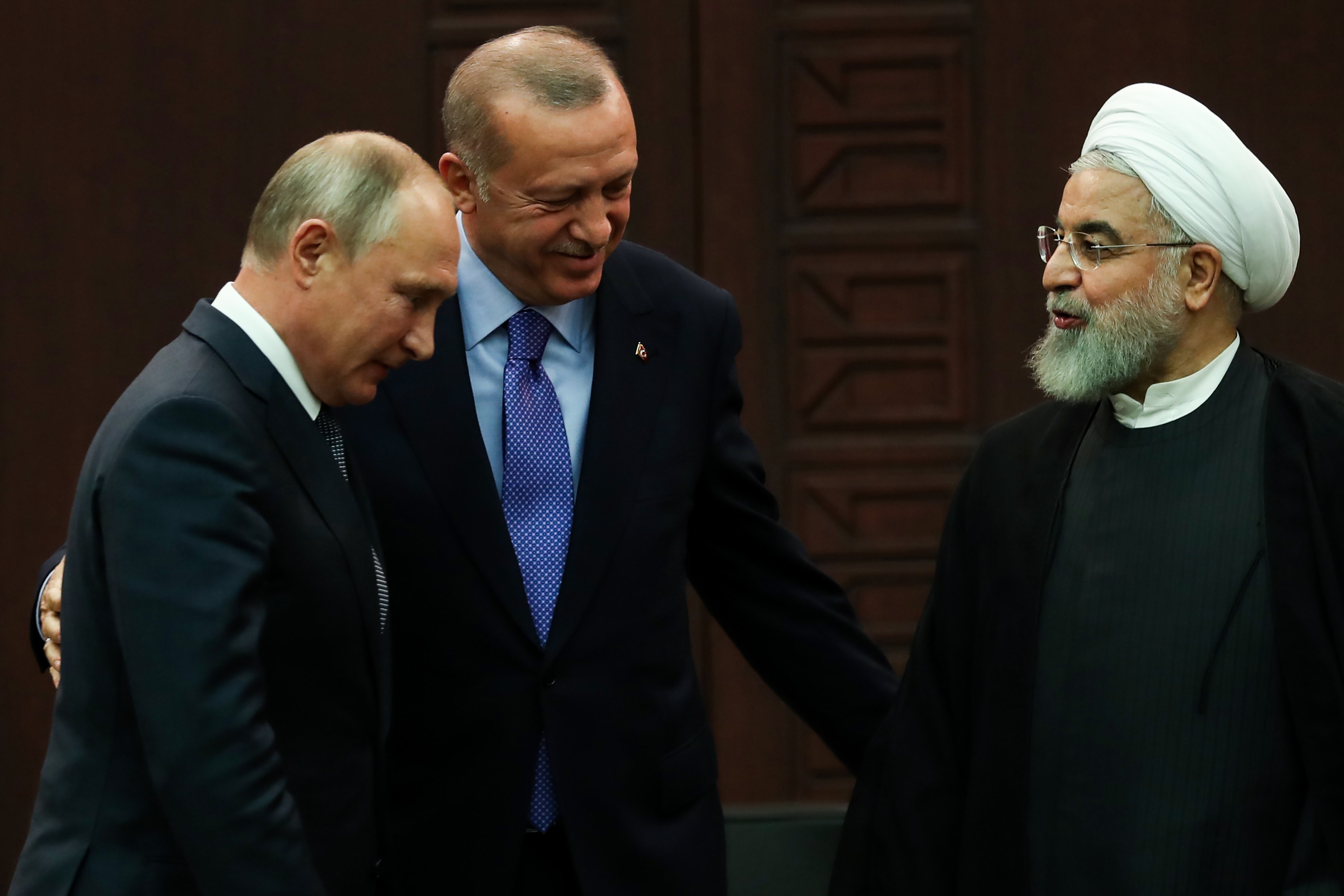Russia strives to increase its influence in the Middle East and North Africa
(Baonghean.vn) - In an effort to strengthen its position and influence in the Middle East - North Africa region, Russian Foreign Minister Sergey Lavrov is on a visit to two geostrategic countries, Egypt and Iran. Not only to strengthen bilateral relations and cooperation, the trip also aims to balance and compete with the efforts of many major countries such as the US and China, which have recently continuously sent top officials to this region.
Springboard for the Libya issue
At the beginning of the new week, Russian Foreign Minister Sergey Lavrov arrived in Cairo, Egypt, and met with the host country's President Abdel Fattah al-Sisi and Foreign Minister Sameh Shoukry. As expected, as a leading partner of Russia in the North African region, the discussions between officials of the two sides focused on promoting bilateral relations in all aspects, from trade, economy to culture, humanitarian... Especially efforts to resume tourist flights from Russia to Egyptian resorts - which had been suspended since 2015, after the tragic plane crash that killed more than 200 people in the Sinai Peninsula. These are steps to realize the Russia - Egypt Comprehensive Partnership and Strategic Cooperation Agreement, which was signed by Russian President Valadimir Putin and Egyptian President Abdel Fattah al-Sisi in October 2018, during the Egyptian leader's visit to Russia. The agreement is for a term of 10 years and is automatically renewed every 5 years unless either party decides to withdraw from the agreement.
 |
| Russian Foreign Minister Sergey Lavrov is on a multi-strategic visit to Egypt and Iran. Photo: TASS |
Observers commented that President al-Sisi's visit to Russia at that time tightened relations, bringing Russia and Egypt into a new phase of cooperation in depth and substance. Inevitably, Russian Foreign Minister Lavrov's visit this time is also not outside the goal of deepening the agreement reached between the two sides. However, it does not stop there, the Russian Foreign Minister's choice of Egypt as the destination for this trip not only promotes bilateral relations, Mr. Lavorv is also said to want to take advantage of this relationship as a stepping stone to approach and handle the hot spot of Libya - another geostrategic area after Syria where Moscow is looking to increase its influence.
Libya - Egypt's western neighbor, a strategic access point to the Middle East - North Africa as well as Africa's Sahel region. In recent times, Russia and Egypt have both supported General Khalifa Haftar - the military commander in eastern Libya. In July 2020, the Egyptian Parliament approved a provision that gives President al-Sisi the right to deploy troops abroad to fight terrorist groups and militias. According to observers, although Egypt is unlikely to deploy troops into Libya without a particularly serious reason, Russia has contingency plans with Cairo to prepare for any plan if needed. These plans include allowing Egypt to use the operating bases of Wagner mercenary groups - which the West accuses of being backed by Russia - in the event of a military conflict. In parallel with preparing contingency solutions, President Putin's administration is always ready to chair negotiations between factions in Libya, playing the role of mediator, strengthening its voice and position in the region.
Sending a message to the West
If Egypt is the target of seeking a springboard for the Libyan civil war, then for Iran, Russian Foreign Minister Lavrov's visit sends different messages. Taking place in the context of the negotiations on the Iran nuclear deal that resumed last week and did not achieve any significant results, it seems that Moscow wants to reassure and affirm that Russia always supports and stands by Iran. In the context of the deadlocked nuclear negotiations, the US and the new administration of President Joe Biden have no intention of making concessions, clearly, Russia's voice of support is what Iran is looking forward to!
But on the other hand, there are opinions that it seems that Russia and Iran also have some differences on the issue of nuclear negotiations. If Iran shows a tough attitude in negotiating agreements with the major powers, then Russia's point of view is that all issues can be negotiated. Or in the issue of Syria, the Tehran government also criticized Moscow for not being really tough, when Israel carried out attacks on facilities of pro-Iranian forces in Syria recently. Therefore, this visit is also an opportunity for both sides to reduce differences and strengthen cooperation for the common interest of responding to the US and the West.
 |
| Egyptian President Abdel Fattah al-Sisi and Russian President Vladimir Putin agreed to strengthen bilateral relations during the Egyptian leader's visit to Russia in 2018. Photo: Reuters |
From another perspective, in recent times, Russia has chosen to actively and willingly engage in the Middle East region in a "mutually beneficial" manner, and Russia is a trustworthy factor. This explains why Russia is both friendly with Iran and also closer to Israel, Saudi Arabia and Türkiye. There are also opinions that Russia may be joining hands with countries like China, Iran and North Korea to fight against the US and the West in some way. Foreign Minister Lavrov's choice to visit Iran at a time when a series of hot spots such as Syria, Yemen, Palestine... are still in disarray is also a message to the new administration in the US. Especially when President Joe Biden is tending to focus more on the Asia-Pacific region, instead of the Middle East - North Africa region. Not to mention, good relations with countries in the region will only bring huge arms sales contracts to Russia. According to the latest figures from Russia's Military-Technical Cooperation Agency, the country's defense exports to the Middle East and North Africa region reach at least $6 billion per year and always maintain a stable revenue level.
 |
| The Russian government is implementing a strategy of goodwill and friendly engagement with countries to increase its influence in the Middle East - North Africa region. Photo: Getty |
Regarding bilateral relations, Russian Foreign Minister Sergey Lavrov is expected to hold talks with his Iranian counterpart Mohammad Javad Zarif today (April 13). The main topics of discussion include energy and transport projects, prospects for cultural and humanitarian cooperation, and especially cooperation in the fight against the Covid-19 pandemic. Evidence of the good relations between the two sides is that Iran signed an agreement in January this year to purchase and transfer technology to produce Russia's Sputnik V vaccine. Thus, despite major countries actively approaching the Middle East - North Africa in many ways, such as the continuous visits of US or Chinese officials, the administration of Russian President Vladimir Putin probably still has its own approach to ensure "stable operation" of policy towards this geostrategic region./.


